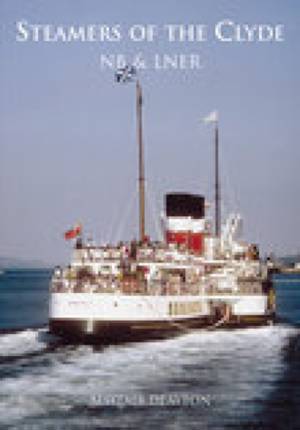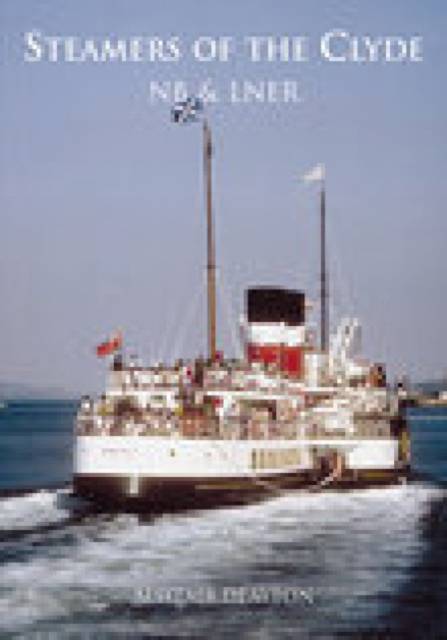
- Retrait gratuit dans votre magasin Club
- 7.000.000 titres dans notre catalogue
- Payer en toute sécurité
- Toujours un magasin près de chez vous
- Retrait gratuit dans votre magasin Club
- 7.000.0000 titres dans notre catalogue
- Payer en toute sécurité
- Toujours un magasin près de chez vous
Description
Steamships and the Clyde have been synonymous since 1812 when the Comet introduced the first regular steamship service in Europe running from Helensburgh to Glasgow. The unique geography of the Firth of Clyde made shipping the most natural mode of transport and on certain routes water travel is still faster today than any other form of transport except for the helicopter. This uniqueness created an arena for a whole series of fleets of steamers, some privately owned but the remainder being railway-operated businesses. The three main railway companies competed for traffic to the coastal resorts and for commuters to Glasgow and the industrial towns bordering the river. The steamers were a natural extension of their business in an area surrounded by so much water. One of those companies, the North British Steam Packet Company, is the subject of this volume. From humble beginnings in 1863, the NB Steam Packet Co. eventually grew to encompass a fleet of ships, many of which are still household names in areas of the Clyde. From the Dandie Dinmont to the Jeanie Deans and a series of paddlers called Waverley the NB Steam Packet and its successor, the LNER, ran a fleet from its bases of Helensburgh and Craigendoran. Included within are scenes from a bygone age when the paddle steamer was King on the Clyde. The advent of the motor car removed the need for many of the steamers and all that survives now are the essential ferry services. The name of the NB Steam Packet lives on however in the Waverley. She is the last vestige of the Clyde's most colourful period and still runs pleasure cruises using many piers that would otherwise lie unused and forgotten.
Spécifications
Parties prenantes
- Auteur(s) :
- Editeur:
Contenu
- Nombre de pages :
- 128
- Langue:
- Anglais
Caractéristiques
- EAN:
- 9780752421070
- Date de parution :
- 30-11-00
- Format:
- Livre broché
- Format numérique:
- Trade paperback (VS)
- Dimensions :
- 166 mm x 230 mm
- Poids :
- 294 g

Les avis
Nous publions uniquement les avis qui respectent les conditions requises. Consultez nos conditions pour les avis.






